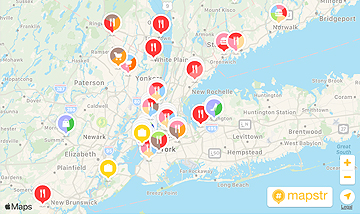France/United Kingdom/migration issues
Paris, August 20, 2015
On 20 August 2015 in Calais, Bernard Cazeneuve, Minister of the Interior, signed an agreement with his British counterpart, Mrs Theresa May, providing for a strengthening of security measures and an increase in the capacity to care for migrants identified as vulnerable.
At security level:
At the beginning of the summer, there was a very sharp rise in the number of attempts to cross via the Channel Tunnel. Bernard Cazeneuve and Jacques Gounon,
Chairman and CEO of Eurotunnel, discussed the difficulties linked to the mass intrusions targeting the Tunnel site.
Exceptional resources were provided to ensure its security and prevent intrusions by migrants trying to reach the United Kingdom. To the 5.5 mobile police units permanently there, another two units were added – i.e. more than 500 riot police and gendarmes in addition to the local personnel. So a total of 1,300 are deployed on the Calais site. This deployment is bearing fruit: whereas 1,700 attempted intrusions a day were recorded a month ago, this figure has been cut tenfold.
Today’s agreement states that the British government will devote €10 million over two years to strengthening police cooperation and providing additional resources to make the site secure, financing security fences and CCTV cameras. It will also help Eurotunnel increase the number of its security staff from 150 to 250.
A new control room will be created, from where additional freight search teams will be deployed 24/7 to reduce the number of illegal passengers.
British police will be deployed in Calais to help the French authorities combat the people-smuggling rings that help the clandestine migrants.
A joint command and control centre will be created in Calais and another in Folkestone, to gather intelligence and coordinate operations. The function of this “unified command” will be to find and dismantle the criminal organizations that try to take migrants illegally to northern France and across the Channel. It will be under the responsibility of two officers, one French and the other British.
At humanitarian level:
The agreement seeks to “increase observation” of migrants to “identify […] those people who are especially vulnerable or who potentially are victims of trafficking”, particularly women and children, with the idea of informing them and putting them in a safe place.
This means capacity for accommodation and care to prevent anyone seeking to exploit them from having access to those vulnerable people.
The migrants benefit from day care with showers and meals at the Centre Jules Ferry, and night places are also reserved for women and children.
The idea is also to encourage voluntary returns to the countries of origin, through information campaigns and programmes to assist [migrants] to return.
This is the purpose of the action being carried out with Niger, where a reception centre for migrants should be opening its doors by the end of the year, under the aegis of the International Organization for Migration, thanks to European funding and in coordination with the European agency Frontex, which is in liaison with the source countries.
To set the return flights in motion, a joint team to remove illegal migrants will be set up, with the British government’s financial contribution. There will also be cooperation on analysis and translation capabilities.
The agreement also seeks to increase the capacity for processing asylum requests, and in this framework “the government of the United Kingdom will provide some support to the government of France for dedicated facilities, a significant distance from Calais”, with the aim of “reducing pressure” in the Calais area.
Finally, at international level, the two countries would like to intensify dialogue with the countries of origin. They agreed to organize “a follow-up conference in Paris, possibly with other member states, by the end of the year”, and to provide support to Greece and Italy in “hot spots” – waiting zones at migrants’ arrival points in those two countries./.














